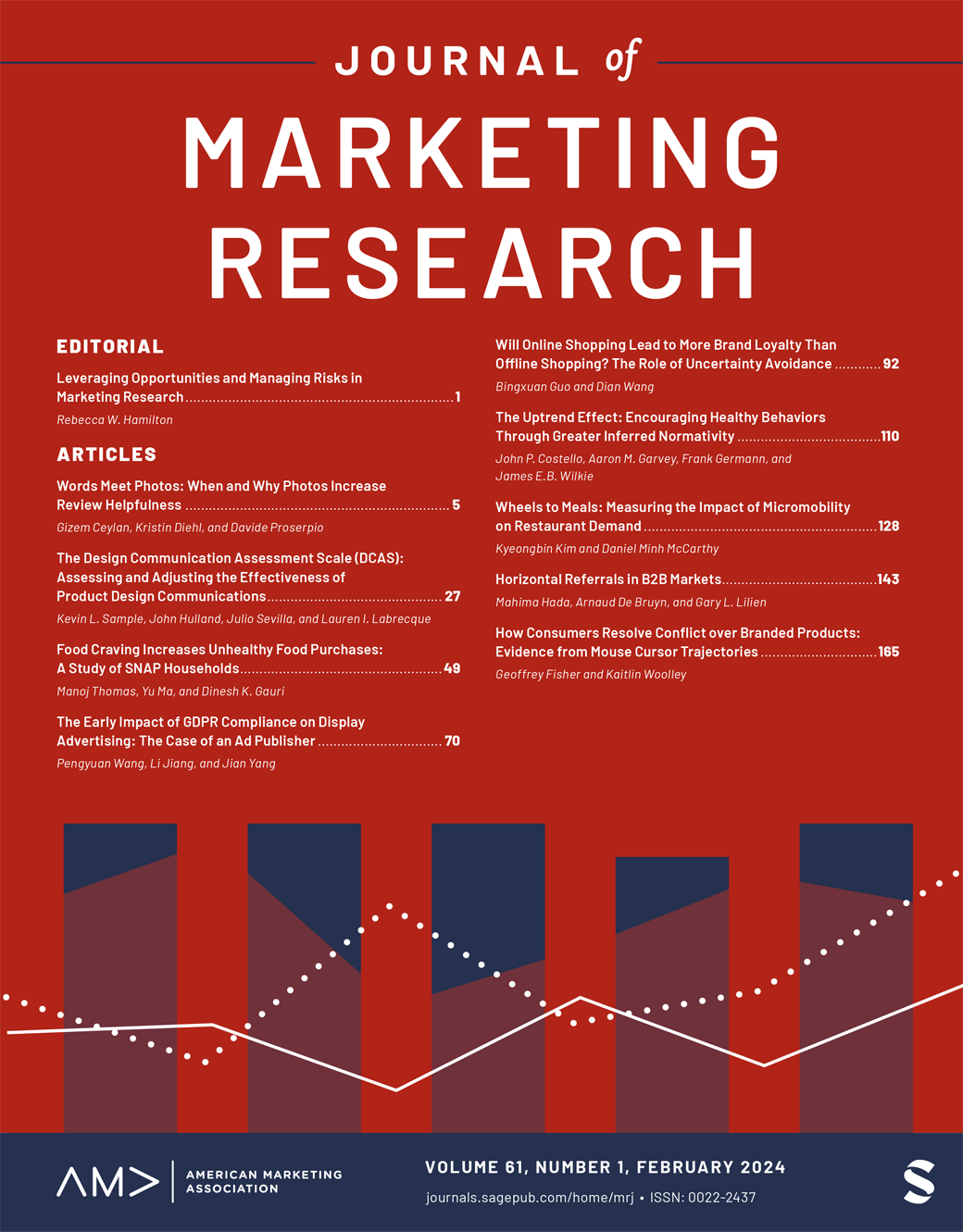The Sound of Music: The Effect of Timbral Sound Quality in Audio Logos on Brand Personality Perception
IF 5
1区 管理学
Q1 BUSINESS
引用次数: 5
Abstract
This research aims to advance the understanding of audio branding by investigating the effect of an understudied auditory attribute, timbre, in the context of brand audio logos. Specifically, the authors propose, and provide evidence in ten studies, that timbral sound quality in audio logos (i.e., roughness/smoothness) informs abstract judgments of brand personality (i.e., ruggedness/sophistication). Study 1 shows that the industry practice of altering instrumentation, and thus timbre, in audio logos can change personality perceptions of even well-known brands. This effect persists when the sound source is kept constant with various instruments (Studies 2a–2d), with a combination of instruments (Study 3), and in the absence of an identifiable sound source (Study 4). The authors test specific acoustic underpinnings of timbral sound quality perceptions (Study 4) and show that the effect on brand personality judgments is counteracted by incongruent sensory information from another modality (Study 5). The results of Study 6 suggest that the influence of timbral sound quality on brand personality perceptions is nonconscious, as consumers are unaware of the extent to which the stimulus affects their judgments. Study 7 shows downstream consequences for purchase intentions. Practical implications, theoretical contributions, and directions for future research are discussed.音乐之声:音标音质对品牌个性感知的影响
本研究旨在探讨音色这一未被充分研究的听觉属性对品牌音频标识的影响,从而促进对音频品牌的理解。具体来说,作者提出,并在十项研究中提供证据,音频标志的音质(即,粗糙/平滑)通知品牌个性的抽象判断(即,坚固/复杂)。研究1表明,在音频标识中改变仪器和音色的行业实践可以改变甚至是知名品牌的个性感知。当声源与各种乐器(研究2a-2d)、乐器组合(研究3)、在缺乏可识别声源的情况下(研究4)。作者测试了音质感知的特定声学基础(研究4),并表明音质感知对品牌个性判断的影响被来自另一模态的不一致感官信息所抵消(研究5)。研究6的结果表明,音质对品牌个性感知的影响是无意识的。因为消费者没有意识到刺激政策对他们判断的影响程度。研究7显示了购买意向的下游后果。讨论了未来研究的实际意义、理论贡献和方向。
本文章由计算机程序翻译,如有差异,请以英文原文为准。
求助全文
约1分钟内获得全文
求助全文
来源期刊

Journal of Marketing Research
BUSINESS-
CiteScore
10.30
自引率
6.60%
发文量
79
期刊介绍:
JMR is written for those academics and practitioners of marketing research who need to be in the forefront of the profession and in possession of the industry"s cutting-edge information. JMR publishes articles representing the entire spectrum of research in marketing. The editorial content is peer-reviewed by an expert panel of leading academics. Articles address the concepts, methods, and applications of marketing research that present new techniques for solving marketing problems; contribute to marketing knowledge based on the use of experimental, descriptive, or analytical techniques; and review and comment on the developments and concepts in related fields that have a bearing on the research industry and its practices.
 求助内容:
求助内容: 应助结果提醒方式:
应助结果提醒方式:


